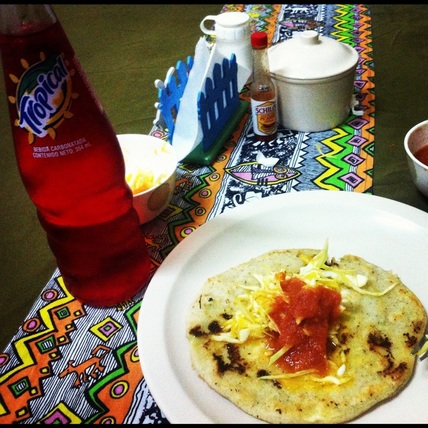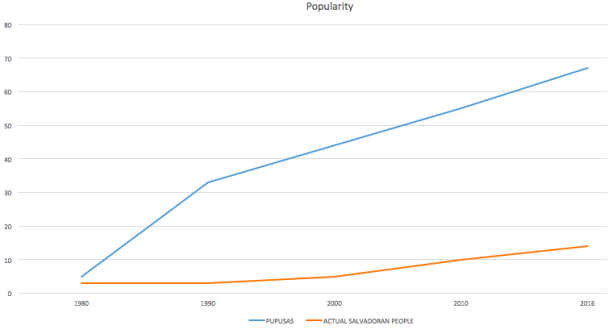Salvadorans, for whom pupusas are almost solely attributed to, are the fourth largest Latino group in the United States. However, assigning pupusas to the whole of El Salvador is somewhat of a contemporary stretch too. They were invented by the indigenous peoples on land now considered the western part of El Salvador, and it's disputed that parts of Honduras & Guatemala lay claim to them as well. For example, my mother is from the fringes of eastern El Salvador in La Union off of Gulf of Fonseca that we share with Nicaragua and Honduras. Growing up in those parts in the 1950s and 60s, pupusas where not a frequent staple in her life as she came to know them later when she moved to the capital of San Salvador in the 1970s. Therefore, pupusas more or less went viral in the mid 20th century and the momentum is still going.
Crimes Against Pupusas
There are even times when people get pupusas almost right but not quite. In April 2015 the Los Angeles Times ran a piece titled “Where to get pupusas in Los Angeles” by foodie writer Cecilia Hae Jin-Lee, a seemingly innocuous article that profiles five places you can support Salvadoran businesses and grub on this fine delicacy of the Central American isthmus. That is until you come up on this line, “We have the Salvadoran civil war in the '80s to thank for the wide availability of the dish.” Twitter discovered this recently, almost a year later but a swift backlash ensued:
This article has a line that really pissed me off: Where to get pupusas in Los Angeles https://t.co/Ej6FZeYiEf
— Polemicist (@PalmTreesnGz) February 23, 2016
"We have the Salvadoran civil war in the '80s to thank for the wide availability of the dish."
— Aura Bogado (@aurabogado) February 24, 2016
What. The. Fuck. https://t.co/3CKuCeeIR5


 RSS Feed
RSS Feed
